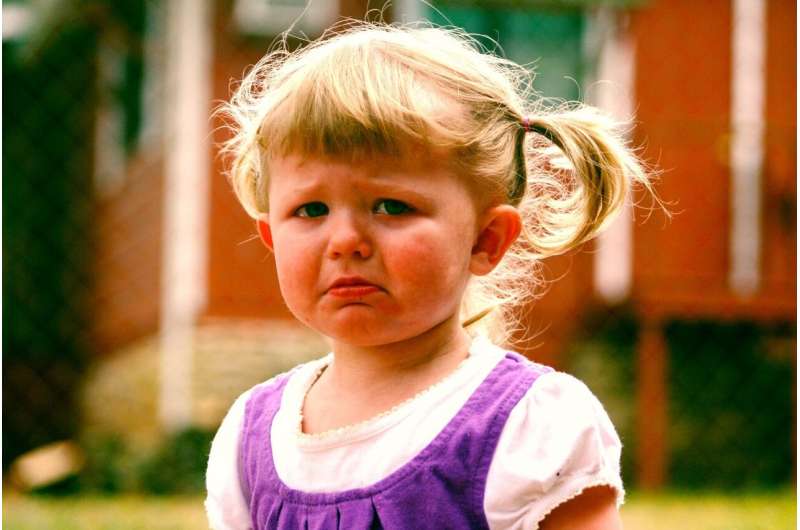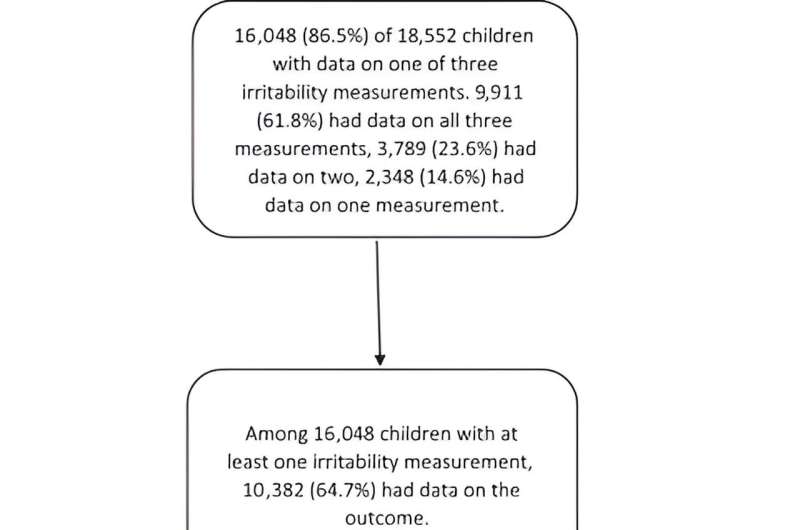This article has been reviewed according to Science X's editorial process and policies. Editors have highlighted the following attributes while ensuring the content's credibility:
fact-checked
peer-reviewed publication
trusted source
proofread
Early childhood irritability and tantrums linked to future depression and self-harm

Children whose irritability does not reduce between three and seven years are at higher risk of depression and self-harm as teenagers, according to a new study led by UCL researchers.
The new findings, published in the Journal of the American Academy of Child and Adolescent Psychiatry, suggest that interventions helping parents and caregivers to support children with high irritability could help to reduce the future risk of mental illness.
Irritability and tantrums are normal during early childhood, and parents sometimes refer to this age group as the 'terrible twos' and 'teenagers.' For most children, irritability improves as they grow older. However, some children continue to struggle with irritability and behavioral outbursts as they grow older.
Although previous research showed that irritability in later childhood increased the risk of future depression, it was not known whether irritability during early childhood is similarly important. Identifying a marker for increased risk earlier would provide a greater opportunity for devising interventions that could prevent mental health problems later on.
This study is based on data from over 7,000 children who participated in the Millennium Cohort Study, a UCL-led nationally representative birth cohort study of people born between 2000 and 2002. Parents answered questions about their child's irritability at three, five, and seven years of age, and teenagers reported depressive symptoms and self-harm at 14 years.

This study found that children with irritability that did not decrease between the ages of three and seven years experienced higher levels of depression and self-harm in adolescence, whereas irritability at three years only was not associated with later depression.
Lead author Dr. Ramya Srinivasan (UCL Psychiatry) said, "This study suggests that while some degree of irritability is part of normal child development, we can identify children who struggle with persistent irritability from as young as five years, thus providing an opportunity for prevention and early intervention.
"The findings emphasize the importance of early childhood for emotional development. Support for parents of young children has been reduced in many countries in recent years and was substantially disrupted by the COVID-19 pandemic. This is concerning and a possible missed opportunity."
More information: Ramya Srinivasan et al, Changes in Early Childhood Irritability and Its Association With Depressive Symptoms and Self-Harm During Adolescence in a Nationally Representative United Kingdom Birth Cohort, Journal of the American Academy of Child & Adolescent Psychiatry (2023). DOI: 10.1016/j.jaac.2023.05.027

















